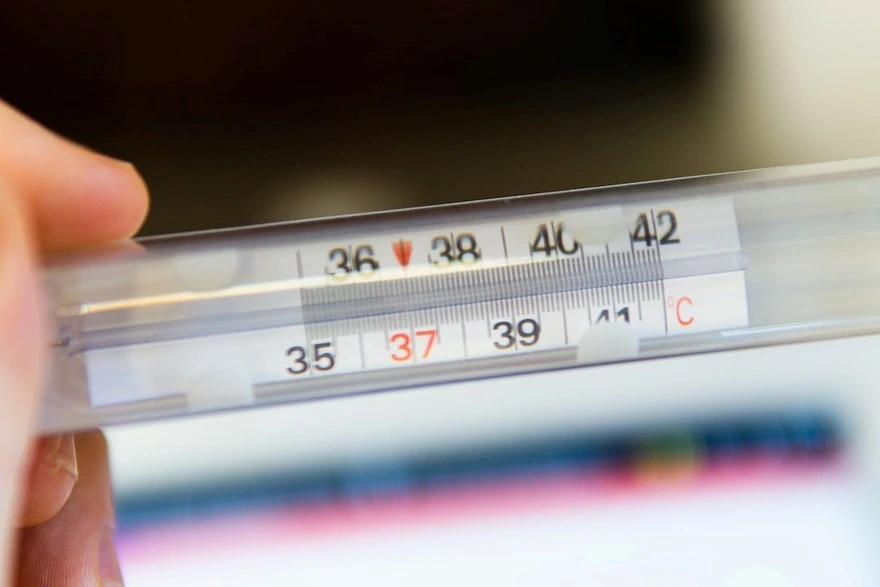Preventive Healthcare
What is Fever Profile Blood Test?

Table of Contents
What is the Purpose of a Fever Panel Test?
If you are wondering what a fever profile test is and why you need it, you are in the right place. A fever profile test is a type of blood test for adults that can serve many functions, from diagnosing the root causes of an unexplained fever to providing physicians with a comprehensive screening to produce results related to the different kinds of ailments caused by the fever. The following are some of the reasons why your doctor may suggest a fever profile test for you.
- To diagnose illnesses like dengue, malaria, or typhoid.
- Detecting diseases early, results in speedy treatment and recovery.
- If you are suffering from chronic low-grade fever.
- If you see the typical symptoms of typhoid fever, such as diarrhoea, abdominal pain, headaches, weight loss, muscle weakness, skin rashes, and loss of appetite.
- If you exhibit symptoms of malaria, like fever, headaches and shaking chills.
When Do You Need To Get A Fever Panel Test Done?
Your doctor may suggest getting a fever profile blood test if you experience any or all the symptoms mentioned below for over two days:
- Severe body ache
- Vomiting
- Loss of appetite
- Headaches
- Diarrhoea
How to Prepare for a Fever Panel Test?
While a fever profile test does not need any specific preparations, you must let your doctor know about any medications you are taking or have taken that may affect these results.
Sometimes, your doctor may advise you to fast for at least 8 to 10 hours the night before the test. However, you have to keep drinking water to avoid dehydration.
How Many Tests are Included in a Fever Profile?
A fever profile test consists of multiple blood tests to check various parameters in the body. The fever profile blood test list includes:
- Complete haemogram (CBC, ESR): It is a comprehensive blood test that provides information about various components of blood.
- Typhoid Dot IgM: This immunoglobulin M (IgM) antibody test is used for the diagnosis of typhoid fever caused by Salmonella typhi bacteria.
- Peripheral smear for malaria: This is a microscopic examination of a thin blood film to detect the presence of malaria parasites.
- Urine routine examination: This test involves the analysis of a urine sample to evaluate various parameters, such as colour, appearance, pH, specific gravity, protein, glucose, ketones, red and white blood cells, and bacteria.
- Serum glutamic pyruvic transaminase(SGPT): This test is commonly used to assess liver function, diagnose liver diseases such as hepatitis, monitor the effectiveness of treatment, and monitor for potential liver toxicity caused by certain medications or substances.
- Aerobic blood culture: This culture is performed to identify and isolate bacteria or fungi present in the bloodstream. It is crucial in diagnosing bloodstream infections, such as sepsis, and determining the causative organisms.
- Dengue Antigen NS1, dengue IgG and IgM: These are blood tests used for the diagnosis of dengue fever, a viral infection transmitted by mosquitoes.
The technician or your doctor will take around 4ml of blood as a sample for the various tests and 3ml of blood serum. This sample is through a needle in the vein directly into a vaccutainer. They may also ask you to collect 10 ml of urine on the spot in a sterilised container given by the lab technician during the fever profile test.
Are There Any Risks?
During a fever profile test, a small amount of blood is collected from you using a needle and syringe. This procedure is relatively quick and painless, and the risks associated with it are minimal.
What Do the Fever Profile Test Results Mean?
A fever profile test report is not easy to understand as it includes various tests. Each test has different parameters to understand and evaluate before your doctor can conclude what it means.
Some of the fever profile test interpretations include
- High neutrophil count: Presence of a bacterial infection.
- Positive Widal test: Typhoid fever.
- Presence of malarial parasite on peripheral smear: Malarial infection.
The results of the routine urine test can indicate a urinary tract infection.
When Should I Go for a Fever Profile Test?
A fever profile test is a diagnostic procedure recommended if you are experiencing a persistent fever accompanied by flu-like symptoms such as vomiting, diarrhoea, headaches, fever, and chills lasting for more than two days. This test aims to provide a comprehensive evaluation of your condition by examining various aspects related to the fever and associated symptoms.
Conclusion
Now that you know how many tests are in a fever profile, what is a fever profile test, and what to expect when carrying out the test, it is essential to find a reliable testing centre. Metropolis Labs is a trusted diagnostic centre in the country with multiple labs, and convenient home testing options focused on giving our customers the best service. Contact us today to check out our fever profile test and other services we offer.
If you’re experiencing persistent fever symptoms or need an accurate diagnosis, you can book a Fever Profile Test today at an affordable fever profile test price.
Also Read: Typhoid Fever: Symptoms, Causes, Stages & How Long Does it Last?




























